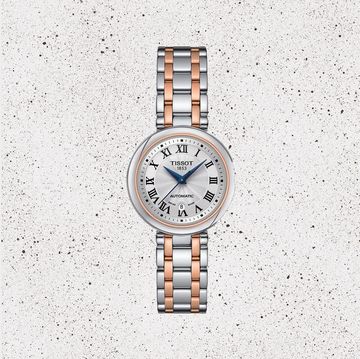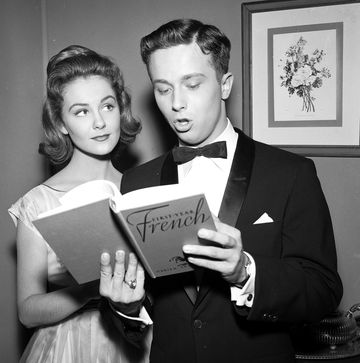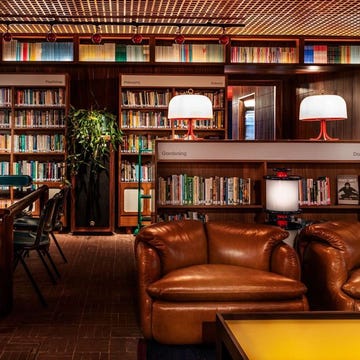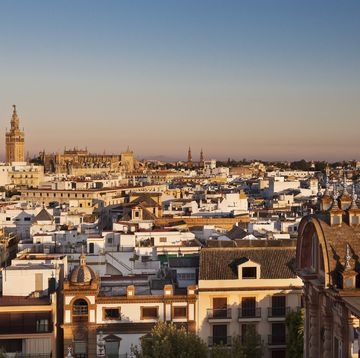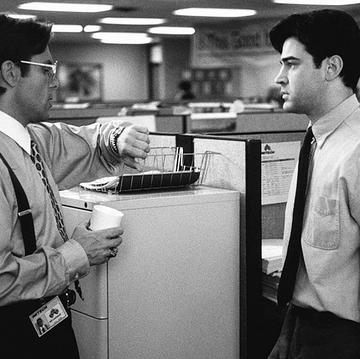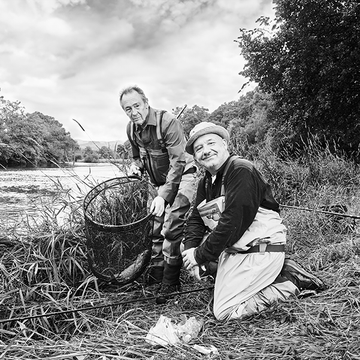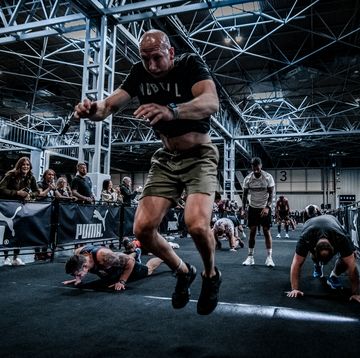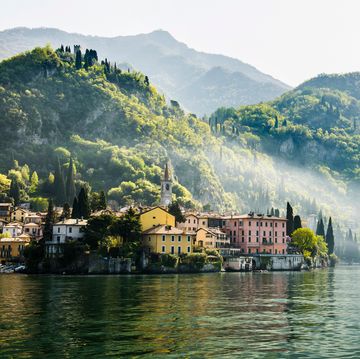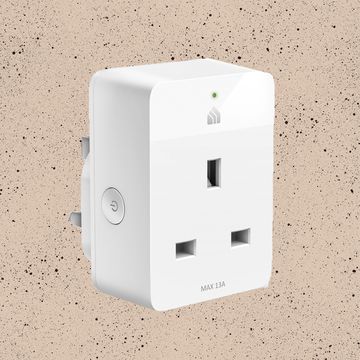This past week in Pyeongchang, the press has been chasing the 22 North Korean athletes ahead of Opening Ceremonies on Friday night. The South Korean media, in particular has been relentless: pestering the North Koreans, studying their every move, taking pictures with trained high-powered lenses in every public space imaginable. The questions are benign, and they get no response, just disciplined smiles. Although a coach did say, “I’m happy we have been welcomed this way,” and a figure skater said she felt "Good."
It is a historic, albeit frenzied, moment. The last time South Korea hosted the Olympics, in 1988, North Korea bombed a Korean Air plane in protest of not being able to co-host the games. Now, the 280-person contingent is the largest group to cross the demilitarized zone in decades.
The country’s envoy is, like most things North Korea, a baffling and polarizing entree to the games. Among the group are government officials, dancers, cheerleaders, the Samjiyn Orchestra, Taekwondo performers, reporters, and security personnel. But the athletes are where all eyes fall, and the question is, will anyone speak up? What sort of symbolic moments like the Rio selfie can we expect? And what sort of geo-political mess would ensue in the highly-unlikely event of a North Korean defection, by athlete or civilian, on South Korean soil?
When the North Korean athletes arrived in Pyeongchang, they entered a highly-politicised (and awkward) game. Many South Korean officials have been critical of the North’s presence, saying it detracts from their international moment—extra criticism fell on the decision to merge the women’s hockey teams and have the nations march under the Unification Flag at Opening Ceremonies. (Mind you, the two countries are technically still at war.)
The athletes’ mere presence is seen by many as a publicity stunt for Kim Jong-un to soften North Korea’s image and shift attention away from human rights abuses and nuclear tensions on the Korean peninsula. Meanwhile, Kim Jong-un held a massive military parade on Wednesday, and Mike Pence, speaking from Tokyo while en route to the Games, made clear he wants to increase pressure on North Korea and “continue to isolate North Korea until it abandons its nuclear and ballistic missile programs once and for all.”
But back to the athletes. Among the North Koreans are 12 women’s hockey players, three cross-country skiers, three Alpine skiers, and two short-track speedskaters. Only two of of them—figure skaters Ryom Tae-ok and Kim Ju-sik—qualified on merit by scoring well enough in recent competition. The remaining athletes have been awarded exemptions by the International Olympic Committee. It’s very unlikely that any of them will follow up on North Korea’s strong showing in Rio, where they won seven medals, with a podium finish.
The 22 athletes don’t get to just come because they’re good at their sport, they’re vetted. North Korea selects the most intensely loyal athletes to represent the country, the ones at the very top of the hereditary loyalty caste system called songbun. “[The athletes] likely have very good songbun,” said Benjamin Young, a Ph.D. candidate at George Washington University who has written about the North Korean athletics.
But just because they’re fiercely loyal doesn’t mean they’ll be given moments to themselves. The head of the Association of North Korean Defectors in South Korea told reporters that one in every 10 members of the delegation is there for security reasons. "A considerable number of supporters including medical staff, cheer squad members, reporters, and other staff will actually be State Security agents," he said.
“It has always been that way,” Lee Ji Young, a defector and former national athlete for North Korea, told the South Korea-based outlet Daily NK. He added, “Ideological training is mandatory before going abroad for competitions. During this stage, they weed out any individuals with ideological deficiencies or who they suspect may cause a problem abroad."
Loyalty aside, any Olympics simmering with political turmoil raises the question of defection. And while the window is near-perfectly sealed—the North Korean athletes aren’t even in the same building as their South Korean teammates—analysts say there’s always a chance.
Neither the North or the South want the publicity of a defection while in the international spotlight, not during this two-week "Unity!" campaign. And even though there are roughly 31,000 defectors residing in South Korea, very few elite athletes from the north have defected. "They live relatively comfortable lifestyles in Pyongyang and are well taken care of by the state… From a materialist standpoint, these athletes also have little reason to defect,” said Young.
Some, however, have left. A judo athlete defected while at a competition in Spain in 1991, and a former North Korean women’s ice hockey player defected through China in 1997. It’s never happened at the Olympics, and South Korea would be the worst place for it.
South Korea would be confronted with the ethical dilemma of whether or not to protect the defector. And depending on the nature of the defection, North Korea might escalate or play down the situation. “It could cause a major inter-Korean incident, of course. Or there's a chance the North Koreans wouldn’t mention it—after all, that's what they did when a man crossed the Demilitarised Zone in November,” said Oliver Hotham, Managing Editor of Korea Risk Group, the leading provider of risk analysis and news surrounding North Korea.
If a North Korean athlete appealed to the South for asylum, the North would likely pull the delegation and demand the South hand the person over. “I cannot and do not want to anticipate how the North Koreans will react,” said Greg Scarlatoiu, executive director of the Committee for Human Rights in North Korea, in an interview with the Global News.
The risk, and the consequences, for the athletes are high. “Their families are living in North Korea and would face punishment if their family member did not return to the ‘motherland,’” said Young.
As the world watches these athletes, what we can expect, in ways we’ve seen
It’s the spectacle of the Games, the thrilling, ridiculous, beautiful, confounding spectacle.




